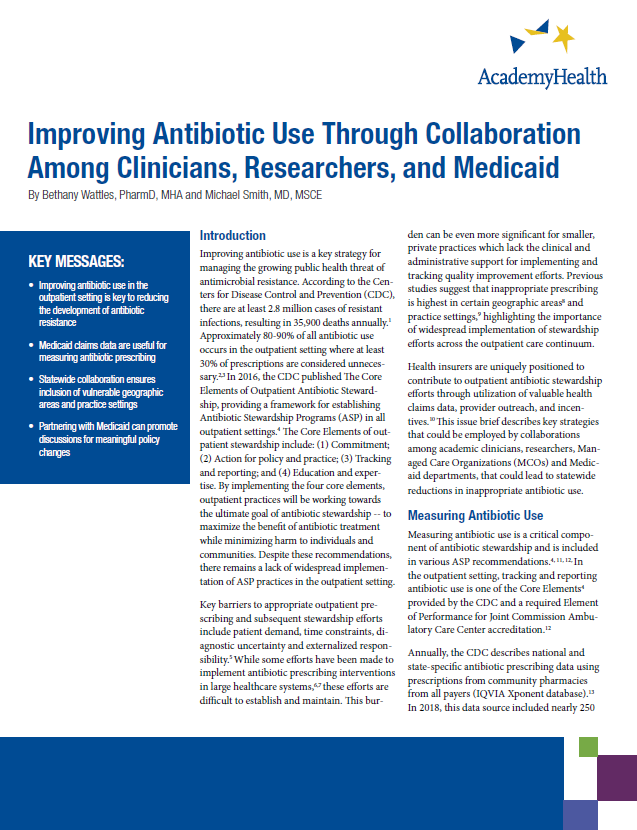
Improving Antibiotic Use Through Collaboration Among Clinicians, Researchers, and Medicaid
This issue brief describes key strategies that could be employed by collaborations among academic clinicians, researchers, Managed Care Organizations (MCOs) and Medicaid departments, that could lead to statewide reductions in inappropriate antibiotic use.
According to the Centers for Disease Control and Prevention (CDC), there are at least 2.8 million cases of resistant infections, resulting in 35,900 deaths annually. In this issue brief, researchers from the University of Louisville highlight key strategies for statewide reductions in inappropriate antibiotic use that could be employed by clinicians, public health professionals, researchers, and Medicaid departments. These strategies include: measuring antibiotic use, collaboration, and policy changes.
Key takeaways:
- Improving antibiotic use in the outpatient setting is key to reducing the development of antibiotic resistance
- Medicaid claims data is a useful tool for measuring antibiotic prescribing
- Statewide collaboration ensures inclusion of vulnerable geographic areas and practice settings
- Partnering with Medicaid can promote discussions for meaningful policy changes.